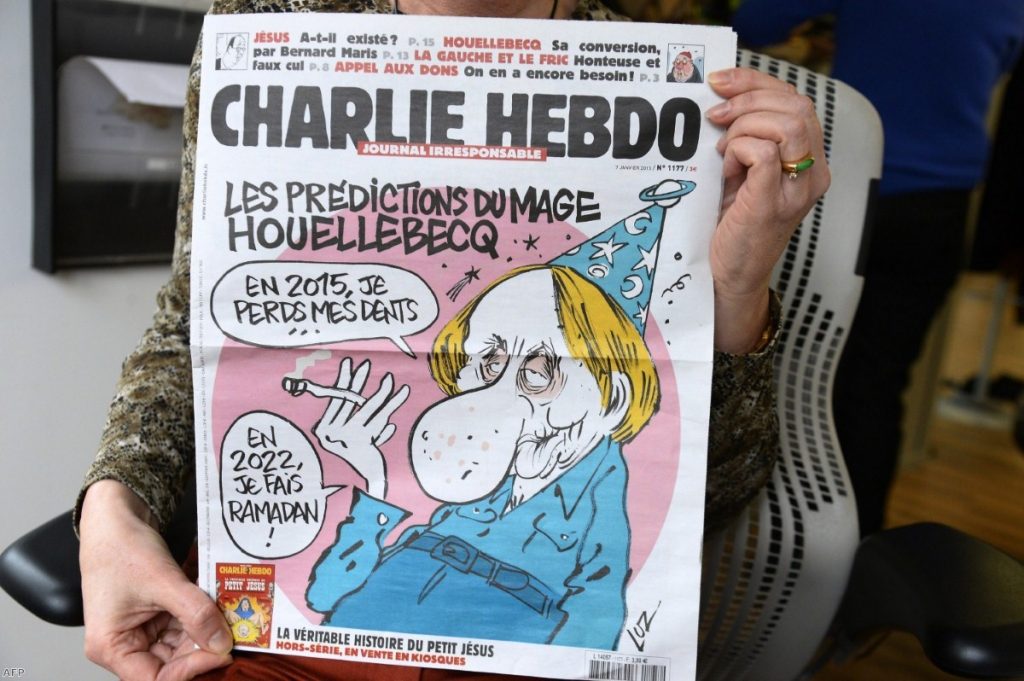Charlie Hebdo attack: This is not about Islam – it’s about free speech
There are plenty of people out there who will use today's attack on the French satirical magazine Charlie Hebdoto to show Islam is incompatible with European values. The 18,000 people protesting against the supposed Islamisation of Europe in Dresden this week will undoubtably feel vindicated. The columnists on right and left who insist Islam is an innately authoritarian religion will cite the attack as further proof that it is a hostile force introduced to Europe by a laissez faire immigration system.
Today's attack has nothing to do with Islam. It's to do with free speech. Everywhere there are lunatics and bastards. It's said that you can criticise Catholicism without triggering a Catholic terror attack and that is generally true, although it's worth remembering this remains a relatively recent development. However, we do suffer attacks by right-wing fascists with some regularity and most of these claim to defend the traditional religions and races of Europe.
The last was by Anders Breivik in 2011, when he killed eight people in Oslo and 69 others, mostly teenagers, in Utoya. In his own literature, he cited several tabloid articles on immigration, including some by Melanie Phillips. No-one suggested terror was a fundamental characteristic of right-wing midmarket tabloid journalism then. No-one should suggest the same for Islam now.
This says little about Islam except that it contains as many barbarians and psychopaths as every other religion or political movement.



Anders Breivik leaves court following the Norway attack
The only sane answer to the tragedy today is to redouble our commitment to free speech. Over the last few years the West has gradually lost faith in free speech. A culture of perpetual outrage has taken over, fuelled by social media and cynically harnessed by political leaders. The police trawl social media for 'offensive' statements. Laws are brought in to outlaw hatred of religions. Anti-terror strategies are broadened to include 'extremist' speech. Newspaper editors pull columns which cause enough offence. Shops remove T-shirts because of a wave of online outrage. Anti-racist exhibits are closed because they feature representations of racism. Pornography is clamped down on to protect the moral fibre of adults.
We are more intent on shutting people up than we are in challenging what they say. Of course, there is a world of difference between these acts and the barbarism we saw on the streets of Paris today. But it is a quantitative difference, not a qualitative one.
It's hard to commend many of the instances of newspapers or magazines in Europe publishing images of the prophet. Their satire often suffers from the significant weakness of not understanding the thing it claims to be satirising. That makes it merely hateful, rather than cutting. But in every case they had a right to publish those cartoons. It's quite possible that in a future scenario, if violent anti-Islam street protests were taking place regularly, doing so would constitute incitement to violence, but we are not there yet. The publication of these sad little images is legitimate.

Some believe social media challenges free speech as much as it assists it
For many Muslim immigrants, be they first or second generation, it can be difficult to accept this, especially amid the backdrop of a concerted Islamophobic media culture. Their discomfort is fair. They are targeted and victimised by European mainstream society more than any other group and they should be commended for their patience and their moderation. It is a lesson their hosts would do well to take note of.
But these instances of offence, of free speech which is hard to stomach, must be allowed. Free speech is the most important value this continent holds. It is the precondition of progress and the guarantor of liberty. The only legitimate restrictions on freedom of speech are harrassment, incitement to violence or severe and specific dangers to public safety. Everything else is legitimate.
We all seem to be forgetting this lesson. Our online debate is increasingly dominated by those who would shut up the speaker rather than attack his opinion. Every time the mainstream adopts this attitude it tacitly accepts the behaviour of extremists. If the deaths in Paris prompt anything, it should be absolute solidarity with anyone who is being shut up – no matter who they are, no matter what they're saying. We are all Charlie Hebdo.









